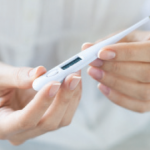In that same year, an article by Kumagai in the journal Arthritis & Rheumatism described 18 patients with connective tissue disease following silicone cosmetic surgery.2 All of the diseases reported were rare. Diffuse scleroderma, for example, has an incidence of only one to two cases per 100,000 individuals. The report recommended further study, pointing out that because there were no exact figures on how many women each year were undergoing silicone breast surgery, there was no way of knowing whether these rare diseases were happening more frequently than in the general population.
In 1990, millions of television viewers tuned in to watch Connie Chung on a segment of Face to Face interview five women who believed their silicone breast implants had triggered muscle and joint pain, rashes, mouth ulcers and debilitating fatigue. Chung’s show kindled a wave of uncritical media scrutiny. That same year, congressional hearings by New York Democrat Ted Weiss also spotlighted the apparent plight of breast implant sufferers. Subsequent lawsuits against Dow Corning and other silicone breast implant manufacturers flooded the courts.
A jury in San Francisco awarded Mariann Hopkins $7.3 million in 1991, convinced that her ruptured silicone implants were linked to her mixed connective tissue disease.3 The following year, FDA Commissioner David Kessler, MD, after reviewing the recommendations of the General and Plastic Surgery Devices Panel, ruled that silicone implants be available only to women who required breast reconstruction after mastectomy. The wording of the decision was vague. It did not say that the implants were unsafe, but rather, the manufacturers had not provided sufficient evidence for the FDA to declare them safe.
The number of individual lawsuits against Dow Corning ballooned to 12,359.
Dow Corning contested the claims that its implants triggered autoimmune disease. Individual jury trials slogged through the courts, and in fact, some juries did not find Dow liable. When they did, however, the awards were huge. A Houston jury awarded three women a total of $27.3 million in 1994 for silicone-induced autoimmune problems. The cumulative impact of litigation brought Dow Corning to its knees. A $4 billion agreement, the largest class action settlement in U.S. history, resolved the lengthy battles over causation.4 Dow Corning (and other smaller manufacturers) agreed to pay claimants a set amount of compensation for a menu of diseases.
All a patient needed to do was be diagnosed by a board-certified rheumatologist with an autoimmune disease listed in the settlement. That’s where I came in.
Back to the Present Case
I scan through Mrs. Morse’s records. It was a quicker read than expected. Her lawyers had spread a wide net, and much of the info was irrelevant to the case: office visits with her family doctor for colds and sore throats, flu shots, Pap smears, bunion surgery.
